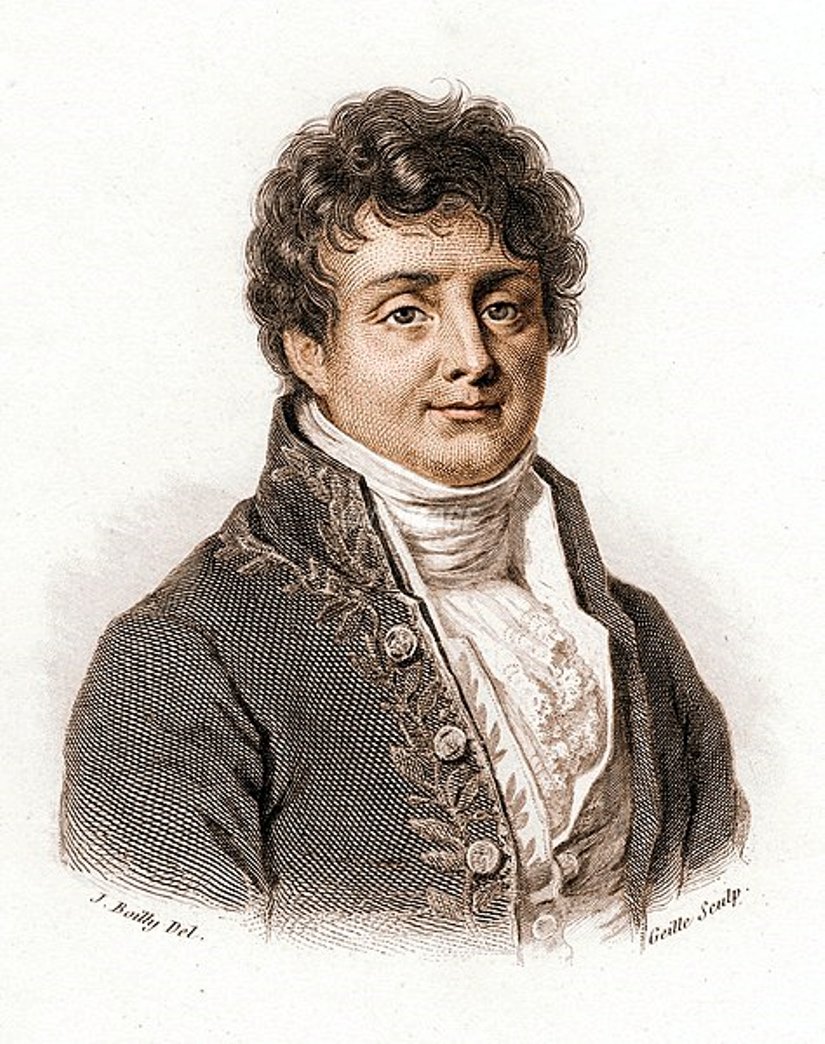Joseph Fourier (1768 - 1830)

Joseph Fourier
Joseph Fourier, full name Jean-Baptiste Joseph Fourier, was a French mathematician and physicist and historical Egyptologist.
Fourier famously accompanied Napoleon Bonaparte on his Egyptian expedition in 1798 as a scientific advisor and was appointed secretary of the Institute of Egypt. During the occupation of Egypt, Fourier worked in the French administration, supervised archaeological excavations, and worked to shape the educational system.
But the main thing in Fourier's life was science. Back in France, he studied the mathematical theory of heat conduction, established the partial differential equation governing heat diffusion, and solved it using an infinite series of trigonometric functions. Fourier showed that heat diffusion obeyed simple observable physical constants that could be expressed mathematically. His work The Analytic Theory of Heat (1822) had a great influence on the development of physics and pure mathematics.
Joseph Fourier was a member of the Paris Academy of Sciences, the French Academy, a foreign honorary member of the St. Petersburg Academy of Sciences, and a member of the Royal Society of London.
| Date and place of birt: | 21 march 1768, Auxerre, France |
|---|---|
| Date and place of death: | 16 may 1830, Paris, France |
| Period of activity: | XVIII, XIX century |
| Specialization: | Educator, Historian, Mathematician, Physicist, Scientist, Writer |

